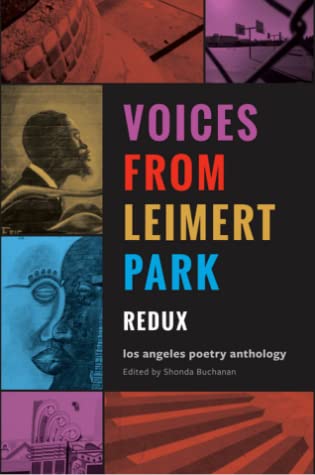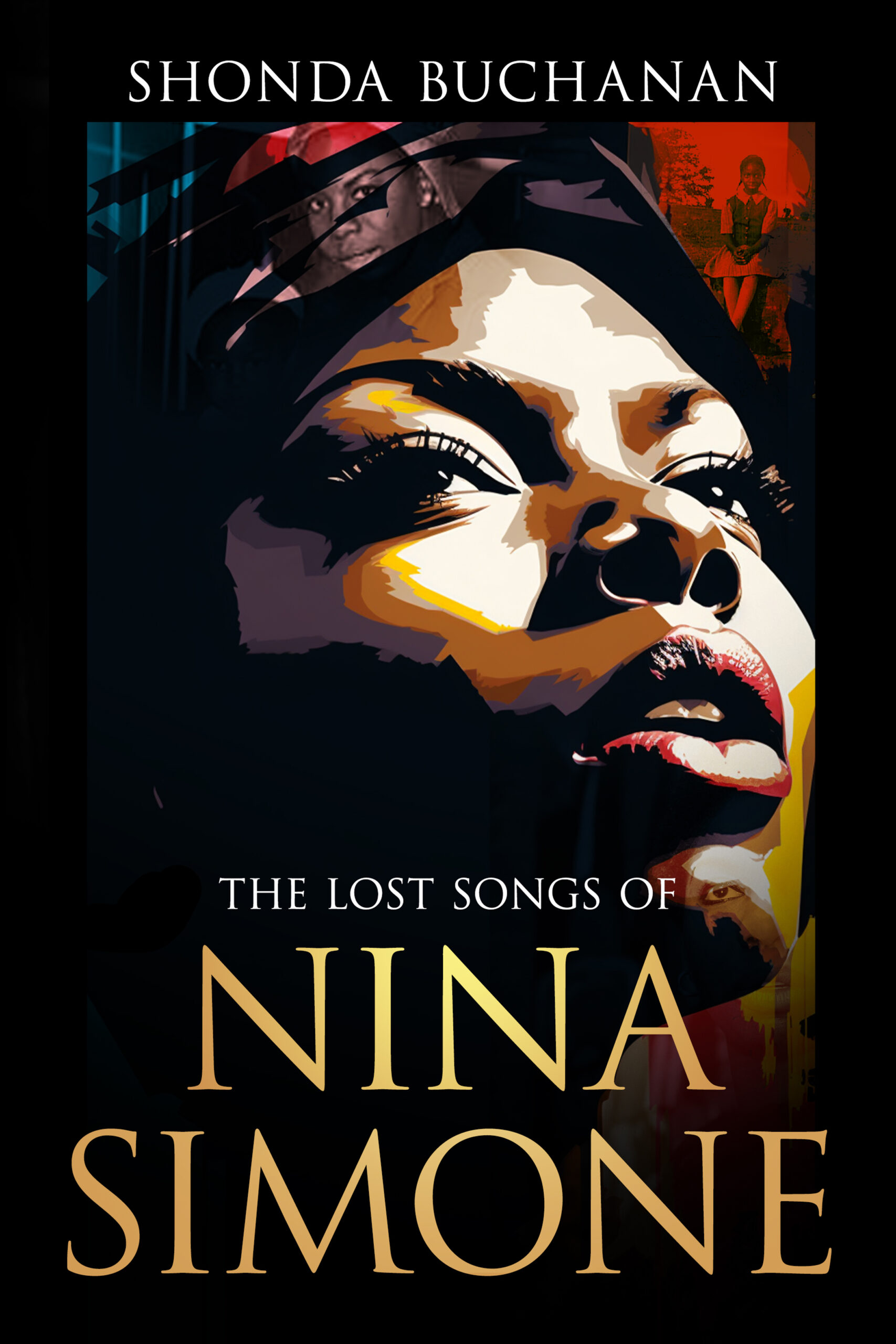Books
The Lost Songs of Nina Simone
Shonda Buchanan weaves a prism of language, sound and light around and through the life of concert pianist, singer and Civil Rights activist, the incomprehensible Nina Simone. With this book, Buchanan is declaring this The Century of the Black Woman, providing a realistic glimpse into not only Simone’s life, but the lives of Black women in America, past and present, and their choices in a myopic, unforgiving country.
A grandchild of enslaved Africans, American Indians and Irish migrants, born into poverty as Eunice Waymon in a traditionally large family, Nina Simone lived a life few Black American women lived during the Jim Crow era in the South, yet rose to ultimately impact the world with her creative genius and determined spirit. This book is both an emotional and historical excavation of an artist’s life, capturing the rise and descent of that life, including Simone’s family history, her childhood and young womanhood, as well as the addiction, mental health struggles and abuse.
The Lost Songs of Nina Simone embodies the rich legacy — the pleats between the cloth — of Simone’s artistry, beauty, self-immolation and rage.
Black Indian
“This is a book that should succeed in reaching and enlightening people for as long as books remain with us. I admire and appreciate your honesty and commitment to truth-telling, and your dogged determination to speak for others.” Norbert Krapf, 2008-2010 Indiana Poet Laureate
Black Indian, searing and raw, is Amy Tan’s The Joy Luck Club and Alice Walker’s The Color Purple meets Leslie Marmon Silko’s Ceremony–only, this isn’t fiction. Beautifully rendered and rippling with family dysfunction, secrets, deaths, drunks, and old resentments, Shonda Buchanan’s memoir is an inspiring story that explores her family’s legacy of being African Americans with American Indian roots and how they dealt with not just society’s ostracization but the consequences of this dual inheritance. Buchanan was raised as a Black woman, who grew up hearing cherished stories of her multi-racial heritage, while simultaneously suffering from everything she (and the rest of her family) didn’t know.
Tracing the arduous migration of Mixed Bloods, or Free People of Color, from the Southeast to the Midwest, Buchanan tells the story of her Michigan tribe — a comedic yet manically depressed family of fierce women, who were everything from caretakers and cornbread makers to poets and witches, and men who were either ignored, protected, imprisoned, or maimed — and how their lives collided over love, failure, fights, and prayer despite a stacked deck of challenges, including addiction and abuse. Ultimately, Buchanan’s nomadic people endured a collective identity crisis after years of constantly straddling two, then three, races. The physical, spiritual, and emotional displacement of American Indians who met and married Mixed or Black slaves and indentured servants at America’s early crossroads is where this powerful journey begins. Black Indian doesn’t have answers, nor does it aim to represent every American’s multi-ethnic experience. Instead, it digs as far down into this one family’s history as it can go sometimes, with a bit of discomfort. But every family has its own truth, and Buchanan’s search for hers will resonate in anyone who has wondered “maybe there’s more than what I’m being told.”
Book Reviews
Black Indian is an intergenerational memoir of Shonda Buchanan’s large extended family of many diversities, loaded with the slippery complexities of myriad ethnic experiences. A woman-centered handing down of experiences and knowledge from mother to daughter, from aunt to niece, the story is as heartbreaking and sorrowful as it is joyful and empowering… Buchanan’s American Indian bloodline begins in North Carolina and makes its way across several states, eventually ending with a family home in central Michigan. That tangible history of movement, interwoven with African, African-American and Euro-American bloodlines, creates a Black Indian identity that is claimed, at times with reference to physical traits such as skin color, facial features and hair, all part of a longing and quest to know who one is and what one is made of.
– Linda Legarde Grover, Star Tribune
[. . .] There is a saving grace in the lives of Buchanan and her women relatives. Many of them have dreams that tell the future, that help guide them away from oncoming shipwrecks. It is through this alchemical magic that Buchanan is able to both reinvent herself and connect with the family she thought she had left behind.
Award-winning poet Shonda Buchanan honors multiple literary traditions in her breathtaking new memoir, Black Indian. An educator, freelance writer, and literary editor, Buchanan is a culture worker with deep, decades-long engagement in communities of color. Her work honors the complexity and diversity of these Black, Indigenous, and People of Color (BIPOC) communities. At once Indigenous, Black Female, Speculative, Feminist, Womanist, Urban, Southern Gothic, and counter to the Tragic Mulatto stereotype in American literature, stage, and film, Black Indian is a quintessentially American narrative.
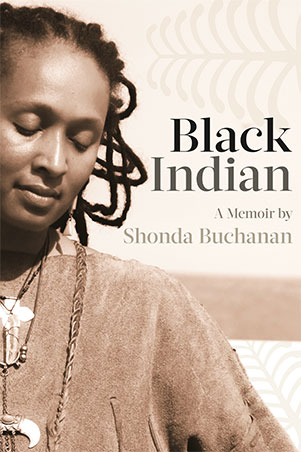
Book Trailer
Book trailer (Short Version)
Equipoise: Poems from Goddess Country
In Equipoise: Poems from Goddess Country, poet Shonda Buchanan reweaves the broken strands of woman, an identity once revered, now defiled. She plucks threads from Egypt, from ancient Greece; binds strands of hair, silk of spiders, twine of witches, filaments of Mary Magdalene’s tattered veil into whole cloth in which to wrap herself, a fabric that allows her female being its magnificence. She offers us, her female readers, this robe and bids us try it on, so we might speak, with her, “They say the world was born/Between my thighs…I am, despite myself, a goddess/ With … an earth to raise.” Buchanan knits history and mystery, acknowledging women’s dual powers to create and to destroy, and reveals the tapestry of a world that has always been, but which has been too long buried.”
– Terry Wolverton, author, Embers
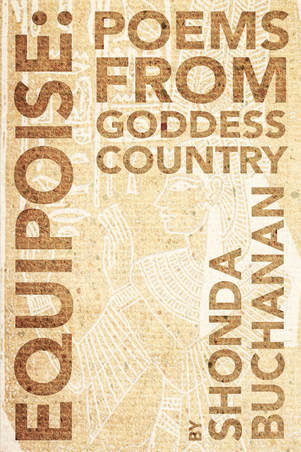
Who’s Afraid of Black Indians?
Who’s Afraid of Black Indians? is a difficult yet beautiful collection of poetry that peeks into one American family’s cultural window. Wanting to forget the past, this chapbook of poetry explores the journey Shonda’s ancestors took from North Carolina to Tennessee, to Indiana and finally Michigan, and the flight and fight to escape racial persecution and racial classification. Yet it is also a book about the recovery of an identity–the intersection of Blacks and Indians in this country. Shonda and her family, like so many other “bi-racial” Native Americans, suffered from not knowing their full roots, and the ills of assimilation, all the while and enduring society’s ever-evolving definition of them. This book will hopefully help other Black Indians, as well as bi-racial and tri-racial peoples, research, reclaim and celebrate their multifaceted heritage.
“Shonda Buchanan’s powerful narrative passionately showcases her Black Indian heritage. Having escaped from a swampland to Tennessee and later to Indiana and Michigan, the author’s determined family surmounts the odds and thrives as Indian, Mulatto, Colored, and Black. Recounted in riveting detail and offering lessons to us all, the poems in this multifaceted volume shed light on the author’s growing awareness of a need to celebrate an ancestry through verse, memorable and spiritual.”
– Carolyn Kreiter-Foronda, Poet Laureate of Virginia, 2006-2008
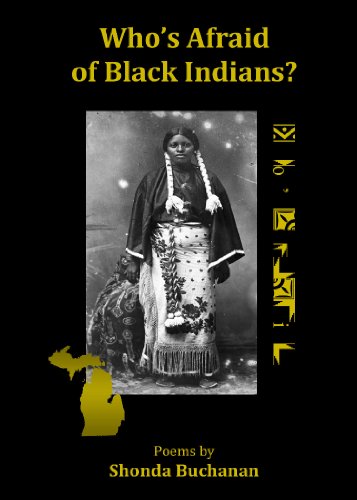
Anthologies
Both Voices from Leimert Park I and II are not just poetry anthologies: they’re community property. The books are a culmination of the lives of poets who attended the Anansi Writers Workshop at the World Stage Performance Gallery for the last 25 years and gave everything they had every moment they stepped to the microphone. VFLP I reflects the lives of Black and Brown Los Angeles, our love, hopes, wishes, dreams, defeats and triumphs. They are activists who use language to testify to their lives. VFLPR reflects the new changes in the community, particularly people in this book are revolutionary writers. I am humbled and proud to have been a part of this act of engagement that allows the words of Los Angeles poets to live forever on the page.

